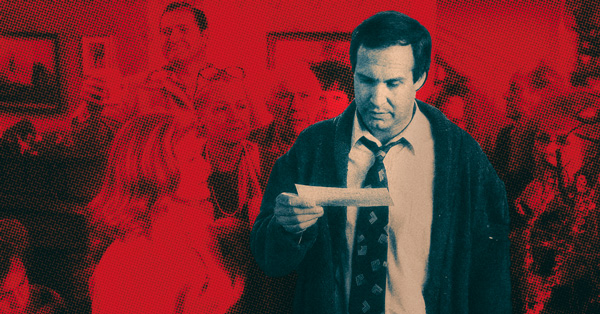
They get the sound of the gates right – I’ll give Hollywood that. There’s the slow, relentless grind, accelerating into that hollow, echoing clang you’ve heard on a hundred TV shows and movies.
That’s about it, though.
As I march through the colorless, concrete halls of the correction center where I teach, there’s no rattling chains and cat-calling. No steel cages. No mournful harmonica music. The women in the cramped little classroom listen politely as I go over the points of resume writing. In fact, there’s precious little that would make you think I worked anywhere but an adult education center.
If it weren’t for the guards and barbed wire, anyway.
My job as a glorified career counselor has me teaching in some strange places – halfway houses and prisons included. It was there that I got a chance to learn about the things they don’t tell you on TV. Things like the staggering number of locked up people who are innocent (or, at the very least, got railroaded by the system). Things like how the dogs from the Pups on Parole program will urinate on the floor if they get excited enough. Things like the smell (seriously, nobody ever talks about the smell).
Thanks to myths and stereotypes pushed by The Shawshank Redemption and Oz, most people have as accurate a picture of prison as Michael Scott from The Office. But for all the things I learned about the realities of prison, it’s what prison taught me about reality that’s stuck with me all these years. These are the four most critical lessons I learned from working in prison about what it means to live freely.
It’s Not About Being Bad, It’s About Being Foolish
What image pops into your head when you hear the word “criminal?”
Some hypnotic, cannibalistic serial killer? A hardened wiseguy pulled right out of Goodfellas? A muscle-bound thug with almost as many tattoos as a SoundCloud rapper?
These aren’t the people I met inside prison.
I met “Bill,” a soft-spoken sweetheart who lacked the skills to de-escalate a conflict and wound up getting into a drunken brawl that ended in manslaughter. I met “Xavier,” a former welder who let road rage get the better of him – chucking his Big Gulp at another car (realizing too late it was the cops). I worked with “Melissa,” a gray-haired grandmother-of-three who got pressured into committing massive fraud by her manipulative boyfriend (he, of course, flipped on her in a plea deal). And yes, I did work with a few honest-to-God genuine predators. They do exist. They’re just in the tiny minority.
Here’s the truth: Plenty of offenders didn’t wake up one morning deciding today was a good day for crimes. That’s not meant to excuse anything, but it is meant to explain it. A lot of people – even many repeat offenders – wound up on the wrong side of the bars not because of some sinister plot, but because of one (or even a dozen) little lapses in judgment, compromises of character, and moments of all-too-human weakness. They were regular people who, when put in a high-pressure situation, made the wrong call.
Why should you care? It might sound like an odd distinction, but it makes all the difference in the world – especially if you’re going to learn from it. As easy as it might be to look down your nose at people with records, the frightening truth is that nobody’s immune. You can be intelligent, kind, and decent and still panic or cave to pressure. No one’s incapable of causing some serious damage. No one’s “above” making some truly terrible errors. It might not land you on the inside, but the line between being your own man and getting chained to some mistake is a lot thinner than most people would like to think.
Which is why you need to learn how to cope.
You need to learn to effectively handle your emotions (anger, in particular). The supposedly “manly” method of suppressing them only means you’re one day going to get overwhelmed by them. You need to recognize when you’re getting roped into a compromising position. You need to develop the discipline of practicing compassion and humility, remembering that nobody’s exempt from errors, and even the best of us is capable of screwing up badly. It’s only when you’re aware of your weak points that you’re able to actually defend them.
And on the subject of self-awareness…
Image Is Everything
While a lot of what you’ll hear about prison is pure myth, there are certain stereotypes that hold true – and none more so than the fact that you can’t show weakness. Not for a second.
Prison has more intrigue than an episode of Game of Thrones and more etiquette than a high-society tea party. People are going to be watching closely to see where you fit in and vulnerability, naïveté, and disrespect (whether you intend it or not) are all going to be interpreted as an invitation to be manipulated or exploited. While not everyone inside is malicious, people are looking out for their own benefit above all else. Everyone wants something, and presenting the wrong image will paint a target on your back.
Life in the real world isn’t so different.
That isn’t to say that you have to be a snarling, aggressive asshole (nothing proclaims weakness louder than overcompensating) but spending even a little time in correctional facilities will make you acutely aware of the unspoken message you’re conveying. The way you talk, the clothes you wear, and the posture you have all generate a picture of who you are, what you’re about, and how you expect to be treated. While the consequences for sending the wrong signal aren’t nearly as dire out in the real world, they do still apply and they do carry weight.
Are you presenting yourself as a team player or the person everyone else in the office can shovel their work onto? Is your tone with the mechanic indicating confidence, or that you’re the kind of person who will buy a bottle of headlamp fluid? Is the favor you’re doing for someone going to be seen as a kind gesture, or something you’ll always be expected to do? What are you saying about yourself when you don’t make an issue of your downstairs neighbors blasting neo-folk doom metal at three in the goddamn morning?
None of this is to say that you’re at fault when your patience and manners get taken advantage of. The only person responsible for mistreatment is the person doing the mistreating (and this applies just as much to “nice” people who struggle with boundaries). Nevertheless, people will keep pushing until they meet resistance, and – for better or worse – they’re going to look to you to set the standard for your own treatment. This isn’t a call to be cynical, it’s a reminder to be smart.
Project confidence, and people will generally ascribe it to you. Stand tall, and most people will stand back. Nobody knows you better than you. If you don’t respect yourself, then why should anyone else?
The Stories You Tell Yourself Matter
Prison is hell for everyone.
It’s cruel. It’s bureaucratic. It’s petty. Hanging above all that like a cloud is a bizarre combination of perpetual danger and excruciating monotony. Given those circumstances, you’d imagine that the inmates would be pretty dejected – and they absolutely were…
…Just nowhere as much as the staff.
For all the madness and misery, a surprising number of prisoners managed to attach some sense to what they were going through. Some told themselves “This isn’t the end of my story – this is just a tough chapter.” Others found a sense of redemption through religion. Still others held onto the conviction that they’d been victimized by the system (even outrage can be something to cling to). There were even lifers who managed to construct meaning by becoming mentors to the younger inmates.
The staff, by contrast, were often jaded, bitter, and burned out – even after only a couple of years. While prisoners had a release date or parole hearing they could look forward to, for many guards and administrators, every passing day was just another day. This was it. People were going to re-offend, so why waste any effort on them? Sure, some inmates might never come back, but there were always going to be more prisoners. There was always going to be more paperwork. There was always going to be some new idiocy to sort through. Time and time again, the perspective I encountered among prison staff was: “Life’s not fair. Some things are unfixable. The best we can do is keep the madness contained.”
That’s not to knock people working a tough job, but when someone with sandpaper-grade toilet paper and maggots in their food can find more zeal for life than someone with a warm bed and a fridge full of beer, there’s a lesson to be learned. Simply put: The stories you tell yourself matter. They give context to whatever you’ve been through, purpose for where you are, and hope for where you might end up.
It’s imperative that you learn how to be mindful of the way you measure your life. No, you can’t escape into some fantasy world of your own creation (more on that in a second) but you can reframe your situation in a way that lets you see past the day-to-day drudgery. Regardless of where you are in life, you're a lot more capable of finding solutions when you're confident there are solutions.
That said, it’s important to understand the distinction between a story that gives us a way to move forward and a story that gives us a way to back out. After all…
The Most Dangerous Temptation Is To Check Out
With all our images of prison as a dark, dirty, violent place, we can easily overlook the most constant element of life on the inside:
The boredom.
In spite of the danger, in spite of the fear, in spite of the crowds and noise, prison can be really, really dull. The endless routine and empty hours blend together into a mindless blur. “Tedium” doesn’t cut it – we’re talking about stagnation. In these circumstances, inmates flail for something – anything – to make time go by. For some people, it’s vegging out in front of the TV (state and federal regulations permitting). For others, it’s chatter, or chess, or cards, or even Dungeons & Dragons.
More than anything else, however, a lot of people simply sleep. They lay back on paper-thin mattresses, close their eyes, and look for a little bit of oblivion to fast-forward the weeks, months, and years. At one facility where I taught, there were even a few inmates who tried to get prescribed medication that would make them drowsy (though it has to be noted that there’s a pretty horrific history of drugs being pushed on prisoners to control their behavior). Checking out might be an alluring option, but there’s no escape from this harsh and simple fact:
Anything that’s shitty now is still going to be shitty in ten years. The only difference is that you’ll be in worse shape to deal with it. Bad coping mechanisms aren’t going to fade away with time. Trauma isn’t going to heal on its own. Career skills and social talents are only going to get rustier, and as incarceration strips everything away from an inmate, the only thing they’re left with is time. It’s what they do that time that defines them.
The same goes for us.
You might not be in prison (probably – cell phone smuggling isn’t at all uncommon), but you may still find yourself at a place in life where things aren’t going the way you’d hoped. You might not be miserable – you might even be comfortable – but still stuck in a place where you’re just, well, waiting. Perhaps stuck in a dead-end job, waiting for an opportunity to open up. Perhaps waiting to meet someone – romantic or otherwise. Perhaps waiting for life to just get better.
It’s in places like this that we’re going to face the same temptation as the people I worked with: The urge to “check out” – to whittle away our time with frivolous distractions. Video games, alcohol, TV, social media, personality quizzes, food – you name it. Things that don’t make us happy or improve our lives but manage to fill the empty hours between waking and sleep.
It’s a trap.
If you're not taking advantage of this time to change something about yourself, there's a chance you'll never escape at all. You’ll end up back in the exact same spot, waiting for a release that will never come. It’s when we feel that we’re “drifting” that we really need to grip the helm. All those things we claim we never have time for? Now is the time to do them. Now is when we should be training our bodies, honing our skills, sorting through our thoughts, and challenging ourselves to grow.
Some of the worst conditions in the world can’t keep people from making something of themselves.
What’s our excuse?



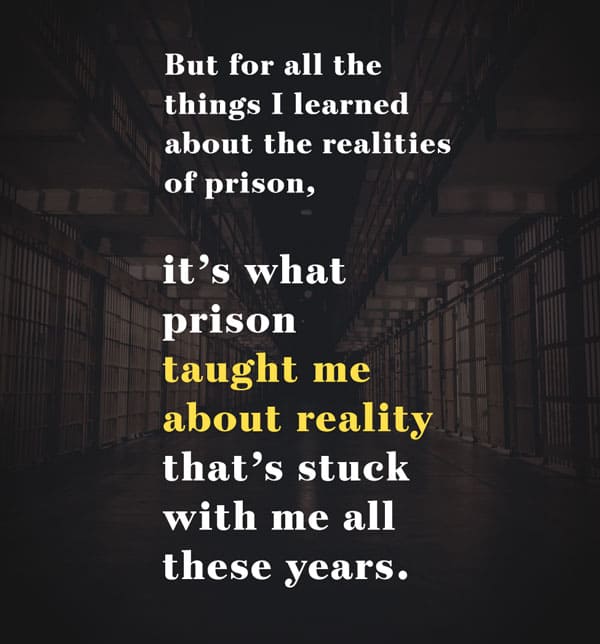
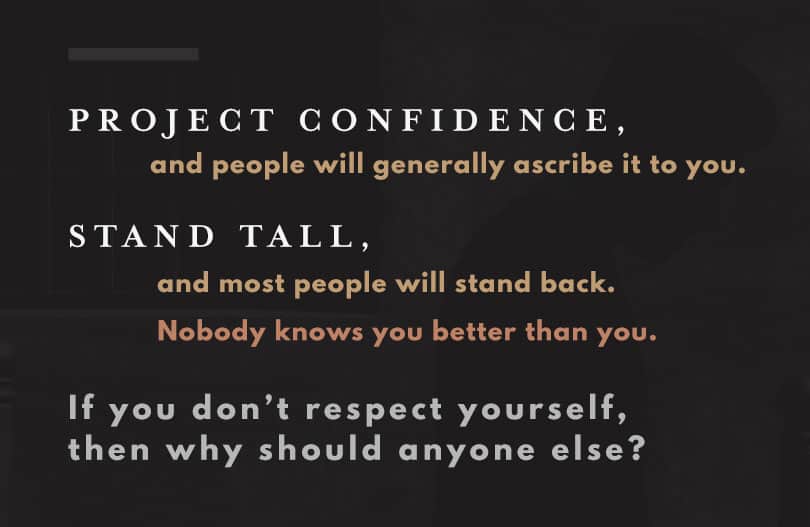
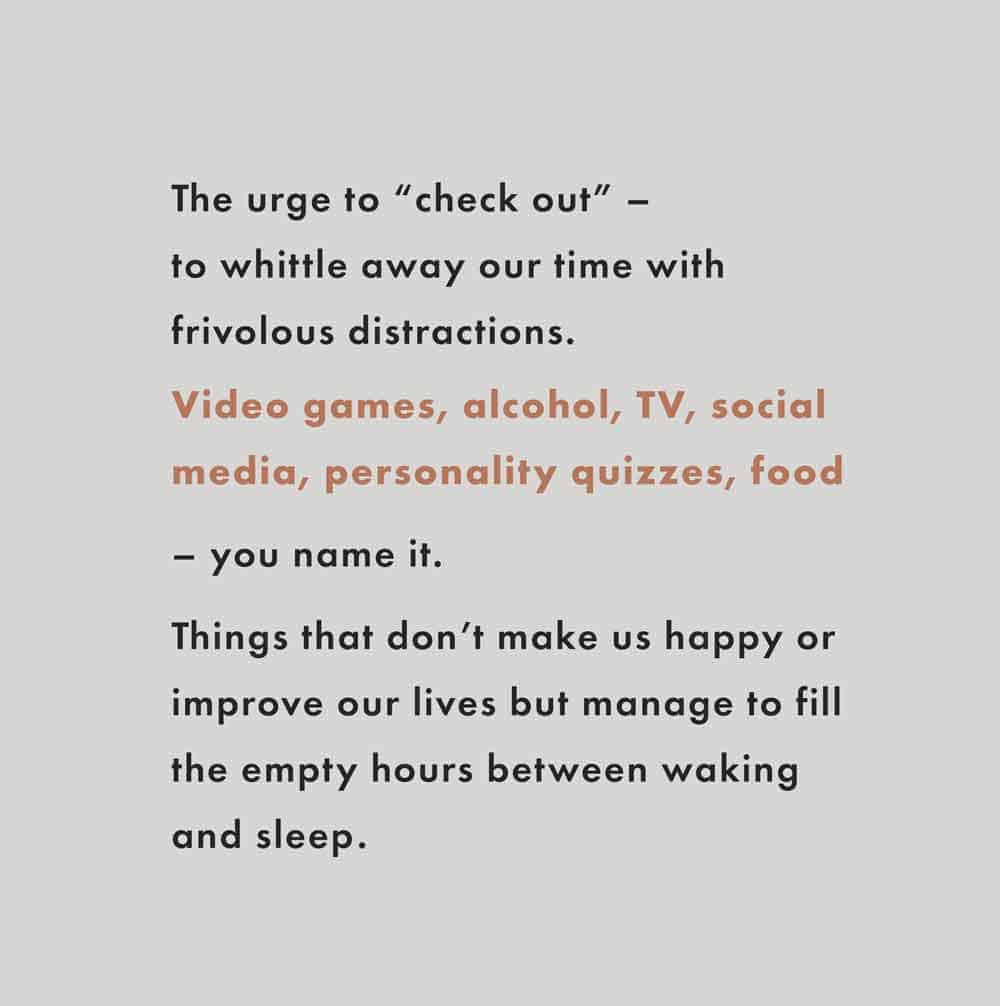




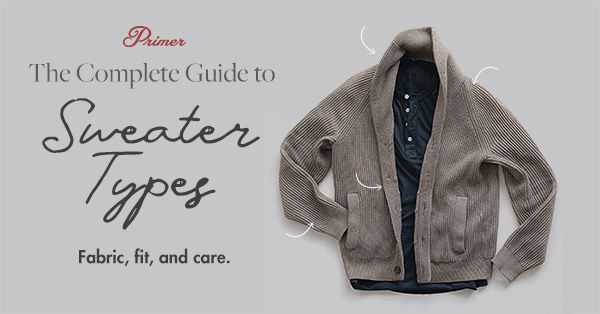

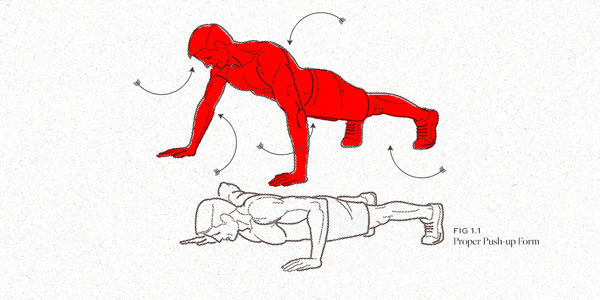
![It’s Time to Begin Again: 3 Uncomfortable Frameworks That Will Make Your New Year More Meaningful [Audio Essay + Article]](https://www.primermagazine.com/wp-content/uploads/2025/01/begin_again_feature.jpg)




